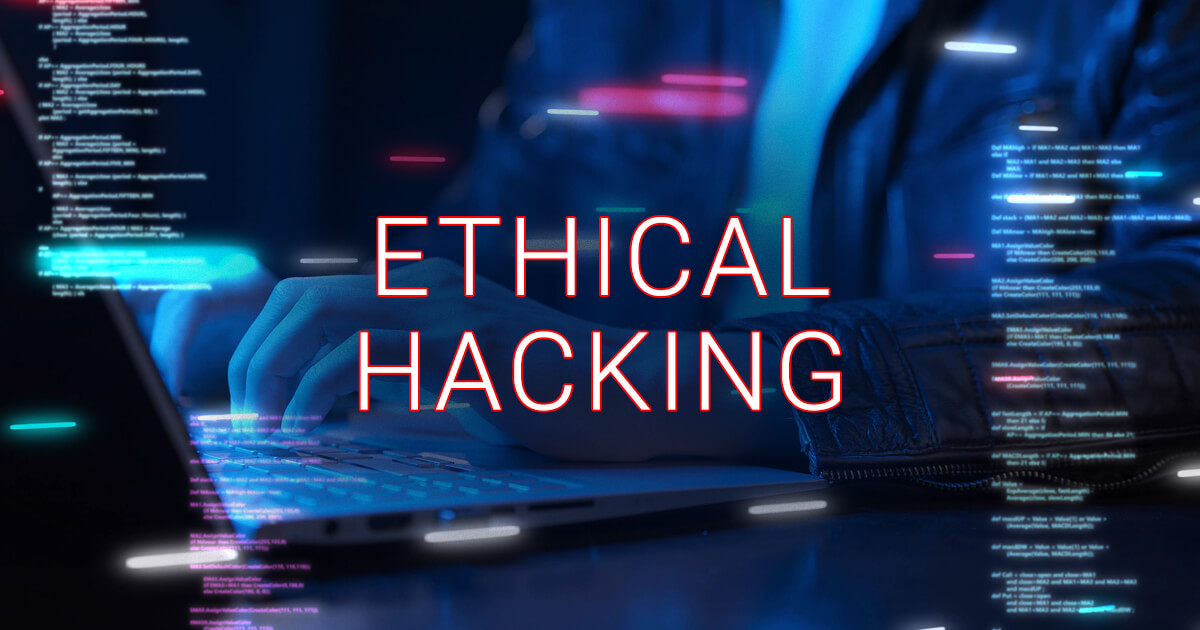
Ethical hacking, also known as penetration testing or white-hat hacking, involves authorized attempts to gain unauthorized access to a computer system, application, or data. This proactive approach to cybersecurity aims to identify vulnerabilities and weaknesses within an organization’s IT infrastructure, ultimately fortifying its defenses against malicious attacks.
In this article, we’ll delve into 11 intriguing facts about ethical hacking, shedding light on its significance in safeguarding digital assets and maintaining the integrity of online operations. From its evolution to the pivotal role it plays in the contemporary digital landscape, ethical hacking encompasses a myriad of compelling aspects that are essential for businesses, governments, and individuals alike. Let’s embark on a journey to uncover the fascinating world of ethical hacking and its profound impact on cybersecurity.
Key Takeaways:
- Ethical hacking, also known as white-hat hacking, helps organizations prevent cyber attacks by identifying and fixing vulnerabilities with legal permission and ethical guidelines.
- Ethical hackers undergo extensive training and collaborate with organizations to enhance cybersecurity, promoting responsible security practices and reducing the risk of potential breaches.
Ethical Hacking is Legal
Ethical hacking, also known as penetration testing or white-hat hacking, is a legal practice of intentionally breaking into systems and networks to discover and fix potential vulnerabilities. Unlike malicious hackers, ethical hackers have explicit permission to assess the security of a system and help organizations strengthen their defenses.
Ethical Hackers Follow a Code of Ethics
Ethical hackers adhere to a strict code of conduct that emphasizes integrity, confidentiality, and lawful behavior. They are committed to using their skills for constructive purposes and are bound by professional guidelines that prioritize the protection of sensitive information and respect for privacy.
Ethical Hacking Requires Authorization
Before conducting any security assessments, ethical hackers must obtain explicit authorization from the organization or individual responsible for the system or network. This ensures that the testing is conducted within legal boundaries and with the necessary consent.
Ethical Hackers Help Prevent Cyber Attacks
By identifying and addressing vulnerabilities, ethical hackers play a crucial role in preventing cyber attacks and safeguarding sensitive data. Their proactive approach helps organizations stay one step ahead of potential threats and minimize the risk of security breaches.
Ethical Hacking Involves Extensive Training
Ethical hackers undergo rigorous training to acquire the technical expertise and knowledge required to assess and fortify security measures effectively. This training equips them with the skills to identify vulnerabilities and recommend appropriate countermeasures.
Ethical Hacking Is a Dynamic Field
The landscape of cybersecurity is constantly evolving, and ethical hackers must stay updated with the latest trends, tools, and techniques to effectively combat emerging threats. This dynamic nature of ethical hacking demands continuous learning and adaptation.
Ethical Hackers Work Ethically and Legally
Ethical hackers operate within the boundaries of the law and ethical standards, ensuring that their actions are conducted responsibly and with the utmost respect for legal and moral considerations.
Ethical Hacking Is Essential for Cybersecurity
In an increasingly digital world, ethical hacking plays a vital role in fortifying the security of systems, networks, and data. It serves as a proactive defense mechanism against potential cyber threats and vulnerabilities.
Ethical Hackers Collaborate with Organizations
Ethical hackers often collaborate with organizations to assess their security posture and provide valuable insights to enhance their overall cybersecurity strategy. This partnership fosters a proactive approach to identifying and addressing potential security gaps.
Ethical Hacking Enhances Security Posture
Through meticulous assessments and proactive identification of vulnerabilities, ethical hackers contribute to enhancing the overall security posture of organizations, thereby reducing the risk of potential security breaches.
Ethical Hacking Promotes Responsible Security Practices
By uncovering vulnerabilities and recommending security enhancements, ethical hackers promote responsible security practices that help organizations mitigate risks and protect sensitive information from unauthorized access.
Ethical hacking, also known as penetration testing or white-hat hacking, is a legal practice of intentionally breaking into systems and networks to discover and fix potential vulnerabilities. Unlike malicious hackers, ethical hackers have explicit permission to assess the security of a system and help organizations strengthen their defenses. Ethical hackers adhere to a strict code of conduct that emphasizes integrity, confidentiality, and lawful behavior. They are committed to using their skills for constructive purposes and are bound by professional guidelines that prioritize the protection of sensitive information and respect for privacy.
Before conducting any security assessments, ethical hackers must obtain explicit authorization from the organization or individual responsible for the system or network. This ensures that the testing is conducted within legal boundaries and with the necessary consent. By identifying and addressing vulnerabilities, ethical hackers play a crucial role in preventing cyber attacks and safeguarding sensitive data. Their proactive approach helps organizations stay one step ahead of potential threats and minimize the risk of security breaches.
Ethical hackers undergo rigorous training to acquire the technical expertise and knowledge required to assess and fortify security measures effectively. This training equips them with the skills to identify vulnerabilities and recommend appropriate countermeasures. The landscape of cybersecurity is constantly evolving, and ethical hackers must stay updated with the latest trends, tools, and techniques to effectively combat emerging threats. This dynamic nature of ethical hacking demands continuous learning and adaptation. Ethical hackers operate within the boundaries of the law and ethical standards, ensuring that their actions are conducted responsibly and with the utmost respect for legal and moral considerations. In an increasingly digital world, ethical hacking plays a vital role in fortifying the security of systems, networks, and data. It serves as a proactive defense mechanism against potential cyber threats and vulnerabilities.
Ethical hackers often collaborate with organizations to assess their security posture and provide valuable insights to enhance their overall cybersecurity strategy. This partnership fosters a proactive approach to identifying and addressing potential security gaps, including the implementation and improvement of access controls. Through meticulous assessments and proactive identification of vulnerabilities, ethical hackers contribute to enhancing the overall security posture of organizations, thereby reducing the risk of potential security breaches.
By uncovering vulnerabilities and recommending security enhancements, ethical hackers promote responsible security practices that help organizations mitigate risks and protect sensitive information from unauthorized access.
Conclusion
In conclusion, ethical hacking plays a crucial role in safeguarding digital systems and data from malicious cyber threats. By harnessing the skills of ethical hackers, organizations can proactively identify vulnerabilities and fortify their defenses, ultimately bolstering their cybersecurity posture. The ethical hacking process adheres to legal and moral standards, ensuring that security testing is conducted responsibly and with the explicit consent of the system owners. As technology continues to advance, the demand for ethical hackers is expected to rise, underscoring the significance of ethical hacking in the digital age.
FAQs
What is the primary goal of ethical hacking?
The primary goal of ethical hacking is to identify and rectify security vulnerabilities within a system or network. Ethical hackers leverage their expertise to proactively uncover weaknesses that could be exploited by malicious actors, thereby fortifying the overall security posture.
How does ethical hacking differ from malicious hacking?
Ethical hacking is conducted with the explicit consent of the system owner and adheres to legal and moral standards. In contrast, malicious hacking involves unauthorized access to systems or networks with the intent to cause harm or gain illicit access to sensitive information. Ethical hacking is performed for the purpose of enhancing cybersecurity and protecting digital assets.
Was this page helpful?
Our commitment to delivering trustworthy and engaging content is at the heart of what we do. Each fact on our site is contributed by real users like you, bringing a wealth of diverse insights and information. To ensure the highest standards of accuracy and reliability, our dedicated editors meticulously review each submission. This process guarantees that the facts we share are not only fascinating but also credible. Trust in our commitment to quality and authenticity as you explore and learn with us.


